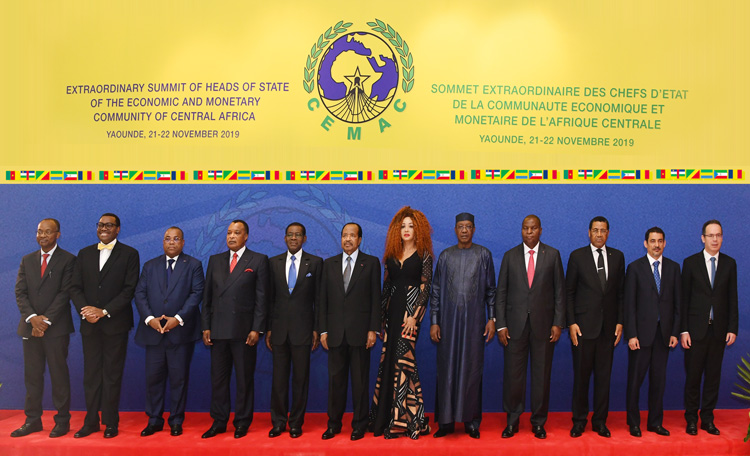Central African Leaders Discuss Ways to Spur Slow Growth
Heads of state and officials from the Central African bloc CEMAC are meeting in Yaounde to discuss the economies of the six-nation bloc, said to be the least developed on the African continent.
CEMAC’s development has been slowed by the spillover of the Boko Haram crisis into Cameroon, carnage in the Central African Republic and political tensions in countries that have some of the world’s longest serving leaders.
CEMAC consists of Equatorial Guinea, Gabon, Chad, the Central African Republic, Cameroon and Congo-Brazzaville.
Hundreds of merchants from Gabon and Equatorial Guinea buy and sell goods at the Cameroon border market of Kiossi, located on the boundary line of the two neighboring states.
Cameroonian vegetable and fruits seller Ahmad Njimuluh says he’d like to see free movement of people between CEMAC member states.
He says between the western Cameroon town of Foumbot where he comes from, and Gabons capital of Libreville there are 68 regular police and customs check points and about 30 other control points which have been found to illegally extort money from commuters.
In November 2017, CEMAC heads of state meeting in Chad said they had reached a milestone agreement to lift visa requirements for its citizens traveling within the regional bloc.
But Gabon-born Roger Ngembou, political consultant with CEMAC, says that except for the border between Chad and Cameroon, where citizens travel freely, nothing has changed.
He says a survey carried out this year on why CEMAC’s growth is slow and projects are hardly implemented indicates that countries are reluctant to open up to each other due to security threats and corruption. He says it is imperative for CEMAC member states to make movement between its citizens visa-free so they can benefit from the opportunities their huge market of close to 60 million people offers.
The economic growth rate in central Africa is barely 1.5 percent. The president of the Republic of Congo, Denis Sassou Nguesso, says the region needs to reexamine some of its policies to speed growth.
Nguesso says for the sub-regional integration they have been asking for to be successful, he and his peers should first of all provide basic infrastructure like roads, rail and air transport, telecommunications and a viable electricity network. He says they have to tackle corruption which is making their countries poorer. He says while waiting for funding to develop the infrastructure, he and Cameroon’s President Paul Biya have decided to build a road linking the town of Pointe-Noire in his country and Douala in Cameroon.
CEMAC has plans to create a regional airline, roads that link the 6 countries, inter-state hospitals and universities. But Ngembou said he doubts their ability to execute the plans with the ongoing economic, social and political tensions in the region.
Cameroon, the region’s main economic engine, is dealing with Boko Haram, and a separatist crisis in two of its regions, and tensions over Biya’s 37 years in power.
In Equatorial Guinea, an attempt last year to overthrow President Teodoro Obiang, who has been in power for four decades, was foiled by his military.
And the Central African Republic has yet to stabilize since rebels overthrew the president there in 2013.
Source: VOA





